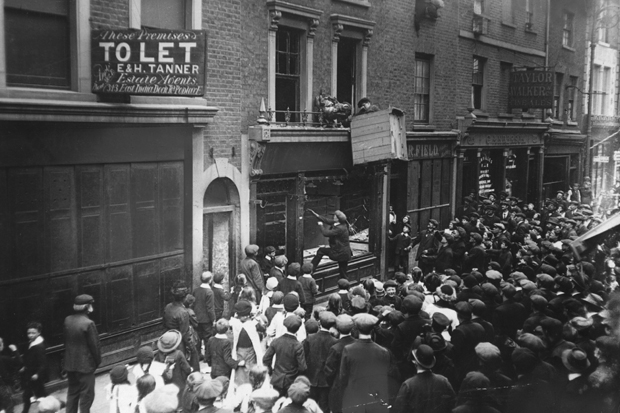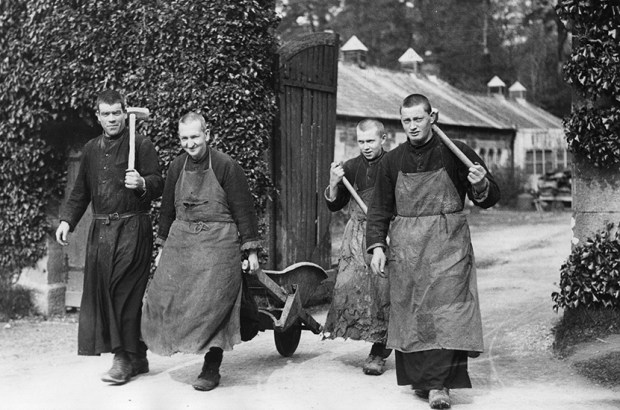From ‘Reprisals’, The Spectator, 30 January 1915: There has been a tendency among some newspapers, and perhaps still more among private persons, to demand that the murder of non-combatants on the East Coast by German ships of war and Zeppelins should be visited with reprisals. ‘Murder is murder,’ they say in so many words, and should be treated as such. If we do not punish the Germans, no one else will or can, and the murderers will go free… The argument bears a strong likeness to arguments used over and over again in history. At the beginning of the Indian Mutiny it was firmly believed by most people — some excellent men among them — that reprisals alone would teach the mutineers the lesson they required. Ruthlessness must be met with ruthlessness, they said, atrocity with atrocity, reign of terror with reign of terror. And yet then, as always, reprisals were a hopeless failure. They are bound to fail, for the simple reason that two wrongs do not make a right. And if reprisals are bad morals, they are also bad policy. Men with any spirit in them are not cowed by the suspension of law among men whom they had previously regarded as faithful to the law. Men of spirit who were law-breakers before become worse law-breakers when they can plead the example of their opponents.
Got something to add? Join the discussion and comment below.
Get 10 issues for just $10
Subscribe to The Spectator Australia today for the next 10 magazine issues, plus full online access, for just $10.
You might disagree with half of it, but you’ll enjoy reading all of it. Try your first month for free, then just $2 a week for the remainder of your first year.














Comments
Don't miss out
Join the conversation with other Spectator Australia readers. Subscribe to leave a comment.
SUBSCRIBEAlready a subscriber? Log in